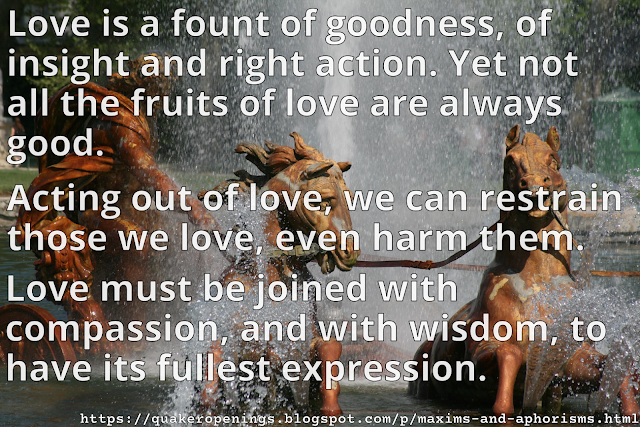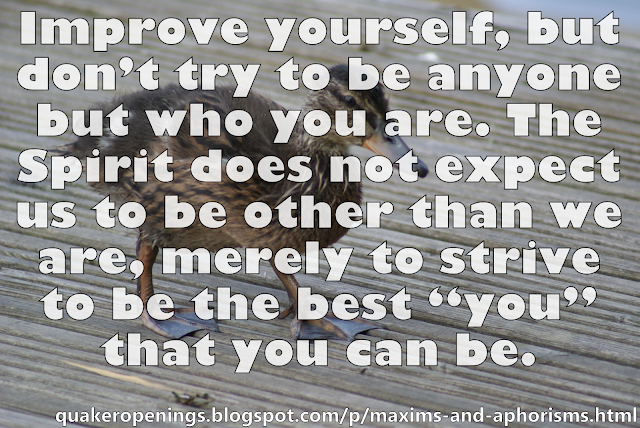In about a month, Friends from across Britain – and beyond – will gather in London for Britain Yearly Meeting 2019. The theme for this year is privilege, examining our own and the range of privilege within our community. As the document Preparing for Yearly Meeting (available from the BYM website) notes:
Privilege – whether we recognise it or not – fundamentally impacts our ability to act on our urgent Quaker concerns regarding climate justice and sustainability, and inclusion and diversity. Privilege is fluid, there are many types, and each varies according to context. The purpose of our examination of privilege is to help each of us become aware of the unseen chains that bind us and determine how we act in our lives.
That document has
a lot of great material to prepare, and I don't intend to reproduce
it or compete with it. There is also a ‘toolkit’ available from
the same link above, Owning power and privilege,
produced by QPSW, and I do not intend to supplant that, either. It
looks at some key concepts and explains them somewhat shallowly,
albeit with examples. I say this not as a criticism – for many,
this is the most we can expect them to learn about this on their own,
and the information in the toolkit is certainly clearer than a lot of
explanations of these things. Hopefully, sharper learning will come
from sessions at YM.
There are two
things that I want to try and help with, in this post. One is simply
to recognise the fact that most active Quakers in this country, including myself, won't
be at Yearly Meeting. I imagine Friends House would collapse –
organisationally, if not physically – if that weren't the case.
Friends elsewhere in the world who are interested in the same sorts
of learning that Britain YM is trying to encourage will also (in the
vast majority) won't be there. These conversations have to happen in
other places if they are to have the greatest benefit.








